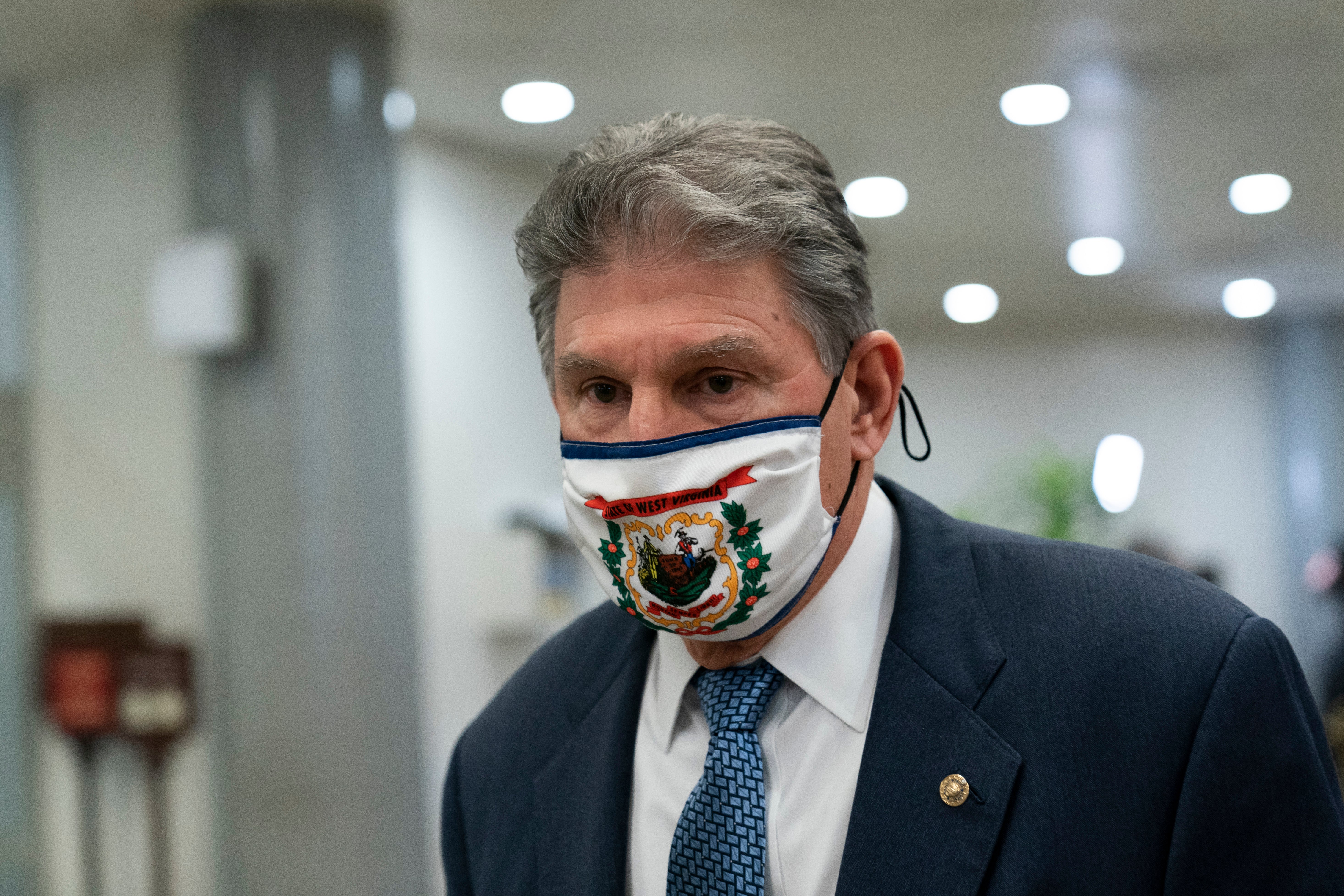Joe Manchin and Kyrsten Sinema are holding American democracy hostage
By denying their party the opportunity to legislate, Joe Manchin and Kyrsten Sinema are now denying them even the opportunity to have any relevant power at all — power in which voters entrusted the future of the country


Your support helps us to tell the story
From reproductive rights to climate change to Big Tech, The Independent is on the ground when the story is developing. Whether it's investigating the financials of Elon Musk's pro-Trump PAC or producing our latest documentary, 'The A Word', which shines a light on the American women fighting for reproductive rights, we know how important it is to parse out the facts from the messaging.
At such a critical moment in US history, we need reporters on the ground. Your donation allows us to keep sending journalists to speak to both sides of the story.
The Independent is trusted by Americans across the entire political spectrum. And unlike many other quality news outlets, we choose not to lock Americans out of our reporting and analysis with paywalls. We believe quality journalism should be available to everyone, paid for by those who can afford it.
Your support makes all the difference.Are Joe Manchin of West Virginia and Kyrsten Sinema of Arizona taking possession of Mitch McConnell’s legislative graveyard and holding American democracy hostage?
Yesterday, one of their centrist Midwestern colleagues, Amy Klobuchar of Minnesota, expressed support for eliminating the filibuster specifically to achieve voting rights protection. So far, however, Manchin and Sinema show no signs of budging to remove that barrier under any conditions.
These two Senators stand in the way of delivering on the majority party’s pro-democracy agenda representing millions more voters than the manifestly anti-democracy GOP. As the failure to pass a $15 per hour minimum wage in the American Rescue Plan reconciliation demonstrated, virtually all House legislation is now stalled.
Put simply, any advances for economic and political rights — be it a public option upgrade in the Affordable Care Act or increasing the fairness of the US judiciary — will be dead on arrival in the Senate, where a sixty-vote requirement blocks passage with a majority vote.
Explaining his position to his home state’sCharleston Gazette-Mail, Manchin asserted: “I have watched power destroy people, good people, because they abused it.” This is certainly an appropriate state of mind in the aftermath of the Trump administration.
But by denying their party the opportunity to legislate, Manchin and Sinema are denying them even the opportunity to have any relevant power at all — power in which voters entrusted the future of the country. In healthy democracies, governing coalitions can make constructive change without emulating the abusive and exploitative tendencies of the prior administration. A majority party can operate respectfully toward the minority without abusing power, self-destructing, or destroying opponents. While it was not modeled over the past four years, it is certainly possible.
In America, the pendulum long ago swung from a dominant political liberalism to conservatism, from the New Deal to the Reagan Revolution, but never back to the cause of economic security. This is more essential than ever during a pandemic — and the largest scale public health catastrophe in US history. So, too, is protecting democracy when such crises historically exacerbate autocracy, which was already in motion before Covid hit.
Without the protections of H.R.1 — or a John Lewis Voting Right Act — to guard against commonplace voter suppression in America, the security of democracy itself hangs in the balance. Unlike the more ostensibly controversial matters of Supreme Court expansion or universal healthcare, protecting voting rights is both salient and sacrosanct to the entire Democratic Party and the vast majority of American voters.
It is not clear that Manchin and Sinema recognize the nature of modern-day Jim Crow attacking the franchise. They should, though, especially Sinema. If authoritarian proposals advance in her state of Arizona without the adoption of H.R.1, not only will many voters be denied the right to vote but also the legislature can usurp the will of the electorate.
The constituencies of Manchin and Sinema are surely not irrelevant and are, in fact, important to the political fortunes of Bidenism and future of a national Democratic Party. Moreover, they would remain centrally important figures — and still contrarian and eccentric — by allowing their party to govern. Klobuchar could negotiate a simple majority to be applied in narrowly tailored circumstances — like H.R.1 and the state-of-the-art infrastructure package that Manchin has publicly encouraged — as McConnell did for Supreme Court seats and Harry Reid for the lower courts before him.
The most powerful momentum could come from the Republican coalition of Mitt Romney, Susan Collins, Lisa Murkowski, Ben Sasse, and Pat Toomey, who have condemned Trump’s Big Lie and are potentially allies in the restoration of democracy, if not H.R.1 as currently composed. Were Romney and company to form a coalition with other Republicans and Democrats — a Gang of 15 or 20 who could override 60 votes — it would effectively neuter the filibuster.
One thing is for sure: Words won’t be enough to battle a metastasizing anti-democracy movement to kill access to the ballot.
Alexander Heffner hosts the PBS showThe Open Mind
Join our commenting forum
Join thought-provoking conversations, follow other Independent readers and see their replies
Comments